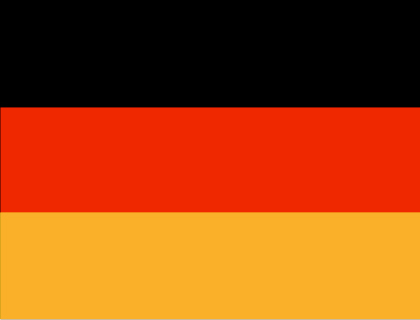NEW DELHI – Iran briefly closed its airspace to German Chancellor Angela Merkel's plane as she flew to India for a visit on Tuesday, delaying her arrival and sparking a diplomatic row.
Merkel was held up as she flew overnight on Monday-Tuesday for a meeting with Indian Prime Minister Manmohan Singh and President Pratibha Patil in New Delhi.
"Hindering the German chancellor's passage over Iran is absolutely unacceptable. It shows a lack of respect towards Germany that we will not accept," Foreign Minister Guido Westerwelle said in a statement.
He summoned the Iranian ambassador in Berlin to "make it very plain that such a breach of international conventions will in no way be tolerated by Germany."
The reasons for the delay were not immediately known and a second plane with four of Merkel's ministers and other delegation members was not held up.
Merkel, speaking at a news conference with Singh, declined to go into detail about the inconvenience, which saw her plane circle for two hours over Turkey before receiving permission to cross Iran.
"I am very glad I arrived safely here," she said. "Everything has turned out excellently. We got to hold the Indo-German consultation. That is the most important thing."
German government sources in Berlin said Merkel's plane was only able to enter Iranian airspace after "intensive diplomatic intervention in Berlin and Tehran."
They said permission to fly over Iran had been granted by Tehran initially and it was "still unclear" why it was later withdrawn.
The foreign ministry said after the meeting that German state secretary Wolf-Ruthart Born had told Iranian ambassador Ali Reza Sheikh Attar that the incident was "unprecedented" and violated international conventions.
Born said Berlin expected Tehran to avoid such problems in future.
It added that Attar had cited "technical-organizational reasons" for the decision and would convey Berlin's concerns to his government "without delay".
Germany is one of six world powers attempting to convince Iran to abandon sensitive nuclear work, which they fear is a cover for a drive to develop atomic arms. Tehran denies such intentions.
Berlin has repeatedly backed UN sanctions against Iran over its nuclear program and this month the European Union added a Germany-based Iranian-owned bank to its sanctions list.
Merkel's troubled arrival overshadowed the meeting with Singh, during which the two leaders agreed to strengthen economic ties between Europe's biggest economy and one of the world's fastest-growing markets.
They also discussed regional security and Afghanistan, where Germany has been reported to be helping mediate secret, direct talks between the United States and the Taliban.
She declined to be drawn when questioned about the reports.
Merkel said Germany would host a major Afghanistan conference at the end of the year and was seeking reconciliation between all groups in the country "if those forces fulfil all conditions such as renouncing the use of force."
The German leader also pressed the case for the Eurofighter Typhoon fighter jet, made jointly by a European consortium including Germany, which is competing for a $12 billion deal up for grabs in India.
"We are convinced that we have the best product on offer compared with others," she told reporters.
The Eurofighter is up against the French-made Rafale produced by defense contractor Dassault.
Germany is India's biggest trading partner in Europe, with bilateral trade at 15.4 billion euros ($21 billion) in 2010. Indian officials forecast that this figure will grow to 20 billion euros by 2012.
The meeting came a day after Germany announced it would phase out its atomic plants by 2022, a global first by a major country in the wake of the disaster in March at Japan's Fukushima Daiichi plant.
India, meanwhile, has announced plans to dramatically increase its nuclear power capacity and has been in talks with Russian, French, Japanese and US groups to build new plants across the country.
At present, three percent of India's electricity comes from nuclear power but the government wants to increase that to six percent by the end of the decade and 13 percent by 2030. (AFP)

